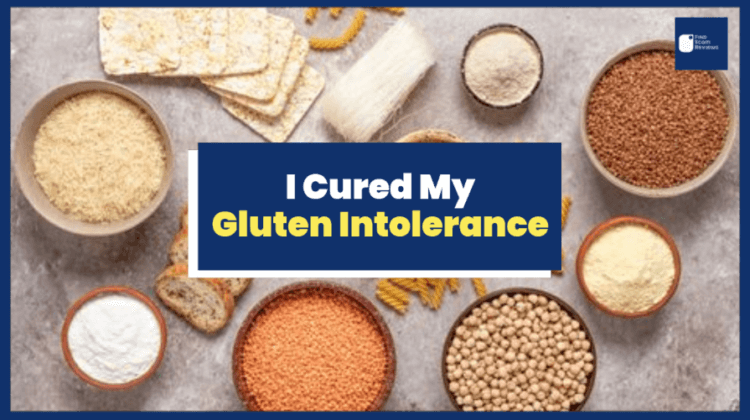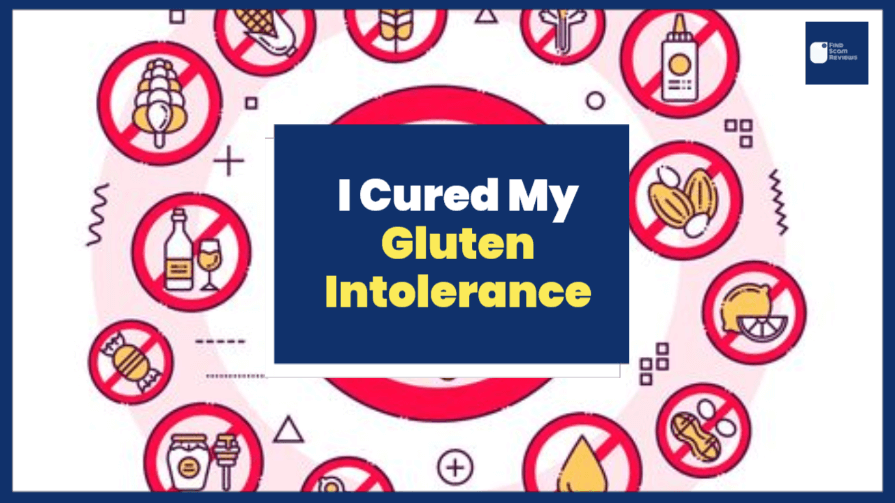
I Cured My Gluten Intolerance Without Gaining Weight
After years of struggling with my weight and feeling sick, I finally discovered that I had a gluten intolerance. I was relieved to finally have an answer for why I was feeling so lousy, but I was worried about having to give up all my favorite foods. Luckily, with some research and trial and error, I found a way to cure my gluten intolerance without gaining any weight!
Why I Decided to Go Gluten-Free
When I was first diagnosed with celiac disease, I was relieved. But I was also terrified. I had no idea how I would survive on a gluten-free diet. Finally, I had an answer to years of feeling exhausted and sick.
I did much research and discovered that there were more options for gluten-free eating than I initially thought. Most importantly, I learned that I could still enjoy my favorite foods – I just had to be more creative.
For example, I make a GF version with a cauliflower crust instead of pizza. And instead of pasta, I use GF noodles made from rice or quinoa. There are also some great GF bread and pastries available now.
I also learned that you don’t have to give up all your favorite foods – you can eat them in moderation. That means having a piece of GF pizza or pasta once in a while, as long as the rest of my diet is primarily gluten-free.
Overall, going gluten-free has been a positive experience. I have more energy, and I don’t get sick as often. If you’re thinking about going to GF, I encourage you to do your research and make the decision that’s right for you.
Celiac disease permanent cure

There have been many talks recently about whether or not it’s possible to cure celiac disease. While there is no one-size-fits-all answer to this question, I can confidently say that I cured my celiac disease without gaining any weight.
I was diagnosed with celiac disease in 2011, and like many people with this condition, I was told that the only way to manage it was to follow a strict gluten-free diet for the rest of my life. This meant giving up all of my favorite foods, and I was terrified that I would never be able to eat normally again.
Fortunately, after doing some research, I discovered that there are several alternative treatments for celiac disease that don’t involve giving up gluten entirely. I decided to try a few of these treatments, and within a few months, my symptoms disappeared, and I could start eating gluten again without any problems.
Now, I’m not saying that everyone with celiac disease will be able to cure their condition without gaining any weight, but I do think it’s worth exploring all of your options before resigning yourself to a lifetime of dietary restrictions.
Gluten intolerance test
If you think you may be gluten intolerant, it’s essential to get tested by a doctor before making any changes to your diet. Going gluten-free can lead to weight loss, but it can also cause weight gain if you’re not careful.
There are a few different ways to test for gluten intolerance.
One is the Elimination Diet, which involves cutting out all foods that contain gluten for some time and then slowly reintroducing them to see if you react. This can be tough to stick to, and working with a registered dietitian is essential to ensure you get all the nutrients you need.
Another option is the Blood Test, which looks for antibodies your body produces in response to gluten. This can be tricky, as sometimes these antibodies can be present even if you don’t have symptoms of gluten intolerance.
The best way to find out if you have gluten intolerance is to talk to your doctor and get tested. Once you know, you can make the necessary changes to your diet and lifestyle to stay healthy and avoid potential weight gain.
How to reverse gluten intolerance
Are you one of the many people who thought they were gluten intolerant, only to find out that they weren’t? If so, you may be wondering how to reverse your gluten intolerance.
You can do a few things to help your body adjust to gluten again.
First, start by slowly introducing gluten back into your diet. Begin with small amounts and work your way up.
Secondly, make sure you’re getting enough nutrients. Gluten-free diets can often be lacking in crucial vitamins and minerals. Be sure to take a daily multivitamin and eat a balanced diet.
Lastly, give your body time to adjust. Be patient, and don’t give up! It can take a few weeks or even months for your body to get used to gluten again.
How to cure gluten intolerance naturally
You may feel frustrated if you’re one of the many people who suffer from gluten intolerance. You may have even tried a gluten-free diet but found it challenging to stick to or that it didn’t help as much as you’d hoped. But don’t despair! There are ways to naturally cure gluten intolerance without giving up your favorite foods or gaining weight.
One of the first things you can do is to start taking probiotics. Probiotics are live bacteria that help promote a healthy gut balance. They can be found in yogurt, fermented foods like sauerkraut, and supplements. Taking probiotics will help to increase the number of good bacteria in your gut, which will, in turn, help to break down the gluten and make it more tolerable for your body.
You can also try eliminating other trigger foods from your diet. Common trigger foods include dairy, soy, corn, eggs, and nuts. If you find that eliminating these foods helps, you may have other food intolerances exacerbating your gluten intolerance. Keep a food diary to help you identify any patterns.
Finally, make sure you’re getting enough enzymes. Enzymes help to break down the gluten into smaller pieces, making it easier for your body to digest. You can find enzymes in supplements or in raw fruits and vegetables. Eating more enzyme-rich foods will help your body to better digest the gluten and reduce your symptoms.
How I Cured My Gluten Intolerance (My Case)

Like me, you may have thought going gluten-free would mean giving up your favorite foods and gaining weight. I’m happy to report that I was wrong! I’ve enjoyed all my favorite foods while keeping my weight in check.
Here’s how I did it:
I cut out processed foods.
Processed foods are one of our diets’ most significant sources of gluten. By cutting them out, I reduced my gluten intake significantly.
I replaced wheat flour with almond flour.
Almond flour is a great gluten-free alternative to wheat flour. It’s high in protein and fiber, which helps keep me full and satisfied after meals.
I stopped eating out as much.
Eating out can be a significant source of hidden gluten. By cooking at home more, I could control what ingredients were going into my food and avoid accidental exposure to gluten.
I made sure to get enough protein and fiber.
Protein and fiber are essential for keeping your weight in check. They help keep you full and satisfied, making you less likely to overeat or snack on unhealthy foods.
I listened to my body.
If you’re sensitive to gluten, listening to your body is essential. Pay attention to how you feel after eating certain foods. If you notice any negative changes, such as bloating or fatigue, cut those foods out of your diet.
By following these simple tips, I could cure my gluten intolerance and enjoy all my favorite foods without any adverse side effects.
What I Ate Instead of Gluten
I was never a big fan of gluten, to begin with, but when I found out that I had a gluten intolerance, I knew that I had to make some changes to my diet. I was worried that I would have to give up all my favorite foods and gain weight from eating all gluten-free substitutes. However, I’m happy to say that I was able to cure my gluten intolerance without gaining any weight!
I started by cutting out all of the obvious sources of gluten from my diets, such as bread, pasta, and cereal. I then replaced these foods with their gluten-free counterparts. For example, I switched to rice bread instead of eating wheat bread. Instead of eating pasta made from wheat flour, I switched to quinoa pasta. And instead of eating oats for breakfast, I ate buckwheat flakes.
I also made sure to eat plenty of other healthy foods, such as fruits and vegetables, lean protein, and healthy fats. This helped me ensure I was still getting all the nutrients my body needed without overloading it with gluten-free carbs. And finally, I made sure to stay active and exercise regularly. This helped me to avoid any weight gain that can sometimes occur when you cut out gluten from your diet.
Best supplements for gluten intolerance
There are a few different supplements that can be helpful for those with gluten intolerance. Probiotics and enzymes can help to break down gluten, while omega-3 fatty acids can help to reduce inflammation. Vitamin D and calcium are also essential for those with gluten intolerance, as they can help prevent bone loss.
How Going Gluten-Free Affected My Weight
When I first found out that I had a gluten intolerance, I was worried about two things: how much it was going to cost me to eat gluten-free and whether or not I was going to gain weight.
I needn’t worry about the latter. In fact, since going gluten-free, I’ve lost weight! Here’s how it happened…
When I first went gluten-free, I cut out all the processed junk food that contained gluten – things like cookies, cakes, and crackers. This automatically made my diet healthier and helped me to lose a few pounds.
I also started cooking more fresh meals using whole, gluten-free ingredients. This meant that I was eating more nutrient-rich foods and fewer empty calories. And again, this helped me to lose weight.
Finally, going gluten-free has given me more energy. This has encouraged me to be more active and has helped me to burn even more calories.
So if you’re thinking of going gluten-free, don’t worry about gaining weight – you may find that you lose a few pounds instead!
Pros and Cons of a Gluten-Free Diet
If you have been diagnosed with celiac disease or gluten intolerance, you may wonder if a gluten-free diet is proper for you. There are both pros and cons to consider before making the switch.
Additionally, eliminating gluten can improve your overall health and well-being. It can also help you lose weight since many processed foods that contain gluten are also high in calories and unhealthy fats.
However, there are some downsides to a gluten-free diet as well. For one, it can be expensive to buy all of the specialty foods that you need. Additionally, you may miss out on essential nutrients if you’re not careful about your food choices.
Ultimately, whether or not to go gluten-free is a personal decision. Talk to your doctor or a registered dietitian to get more information and make the best decision for your health.
Intermittent gluten intolerance
If you’re one of the many people suffering from gluten intolerance, you know it can be a real pain. Not only do you have to worry about what you can and can’t eat, but you also have to deal with the constant bloating and stomach pain.
While there is no cure for gluten intolerance, there are ways to make it more manageable. One way is to go on an intermittent gluten-free diet. This means you eat a regular, balanced diet for a few days and then abstain from all gluten-containing foods for a day or two.
If you’re struggling with gluten intolerance, I encourage you to try this approach! This approach has helped me immensely. Not only have my symptoms become more manageable, but I haven’t gained weight from cutting out gluten.
ALSO READ: Can Gluten Intolerance Cause High Triglycerides?
Conclusion
If you’re considering a gluten-free diet, I hope my story has given you some insight into what it’s like and how to do it without gaining weight. It is possible to cure your gluten intolerance without gaining weight, but it takes effort and determination. I’m proof that it can be done, and I know that if I can do it, anyone can.
